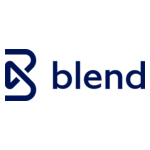FinTech Futures: Top five stories of the week – 21 July 2023
Here’s our pick of five of the top news stories from the world of finance and tech this week.
The US Federal Reserve launches new instant payments system FedNow

The US Federal Reserve launches FedNow
The interbank payment system processes transactions between banks, credit unions and their customers, and claims that these can be completed instantly and at any time. It is to operate in parallel with the Federal Reserve’s existing payment services, including Fedwire and FedACH.
Going live with the new system on Thursday, the US central bank says its aim is “to help make everyday payments over the coming years faster and more convenient”.
The system has currently been adopted by 35 banks and credit unions, including the Bureau of the Fiscal Service operated by the US Department of the Treasury.
Early adopters also include 16 service providers, including ACI Worldwide, BNY Mellon and FIS, which will support banks and credit unions with payment processing.
Federal Reserve chair, Jerome Powell, expects that more banks and credit unions will adopt the system “over time”. When this happens, the system’s instant payments capability is poised to extend to their customers through associated apps, websites and other interfaces.
Swiss SME lender TP24 secures £345m debt funding from Barclays and M&G Investments
Of the total funding, £240 million will be used to lend to SMEs in the UK and the Netherlands, with Barclays providing up to £200 million of it in warehouse financing, and M&G shelling out up to £40 million in mezzanine funding.
Barclays has also offered up to an additional £105 million to TP24, specifically to lend to businesses in Australia.
Founded in 2016 and headquartered in Zurich, TP24 launched two years later to offer revolving business credit to SMEs based on their outstanding invoices, without taking over the debtor base. It has since expanded to Australia in 2019, the UK in 2021 and Netherlands last year.
The company, which is privately held, counts Credit Suisse, SIX Group and Berliner Volksbank Ventures as its main shareholders.
The Financial Stability Board (FSB) publishes global regulatory framework for cryptoassets

FSB publishes global regulatory framework for cryptoassets
The international body for monitoring the global financial sector has particularly strengthened recommendations in three areas – ensuring adequate safeguarding of client assets; addressing risks associated with conflicts of interest; and strengthening cross-border cooperation.
“The events of the past year have highlighted the intrinsic volatility and structural vulnerabilities of crypto-assets and related players,” the FSB says in a statement. “They have also illustrated that the failure of a key service provider in the crypto-asset ecosystem can quickly transmit risks to other parts of that ecosystem.”
The framework takes into account the “lessons” from the past year as well as feedback received during its public consultation phase, and consists of two distinct sets of recommendations – one for the regulation, supervision and oversight of cryptoasset activities and markets, and the other for “global stablecoin” arrangements.
It adds that they do not cover all specific risk categories related to cryptoassets, and outlines that Central Bank Digital Currencies (CBDCs) are not subject to these recommendations.
The news comes exactly a year after it had published a statement calling for the need to regulate the crypto industry on an international level.
Yazan Hamdan joins Bank of Jordan as new head of digital banking
Hamdan confirmed the appointment via a LinkedIn post this week, saying he is “keen to collaborate with a talented team to embark the bank’s digital transformation journey,” his statement reads.
He joins the bank, which is headquartered in the country’s capital Amman, from Jordan’s first neobank Blink, where he has fulfilled the role of platform lead since December 2021.
Bank of Jordan is continuing to explore the industry’s latest digital innovations and Hamdan will prove central to its ambitions of becoming a leader in the space.
His appointment comes less than two months after the bank launched its business banking platform to connect corporations with “flexible and advanced” banking solutions and tap into the digitalisation of financial, accounting and customer relations management.
Deutsche Bank fined $186m by US Federal Reserve

US Fed fines Deutsche Bank $186m
The US Federal Reserve Board has fined Deutsche Bank $186 million citing “unsafe and unsound banking practices” and “violations of the Board’s 2015 and 2017 consent orders with Deutsche Bank relating to sanctions compliance and anti-money laundering controls”.
The Fed says it found that Deutsche Bank made “insufficient remedial progress” in fixing its anti-money laundering controls after initially flagging concerns with the bank back in 2015 and 2017.
It adds that Deutsche Bank “had deficient anti-money laundering internal controls and governance processes relating to its prior relationship with the Estonian branch of Danske Bank”.
Along with the fine, the Fed has also issued a new consent order against Deutsche Bank AG, its New York branch and other US affiliates that requires the firm to prioritise the completion of “several critical requirements” of the Fed’s previous orders. It adds failure to do so may require “additional and escalated formal actions” including additional penalties or corrective actions.
In response to the two enforcement actions, Deutsche Bank says in a statement: “We are committed to maintaining robust risk management programs with a special emphasis on Anti-Financial-Crime and Compliance controls.”










































